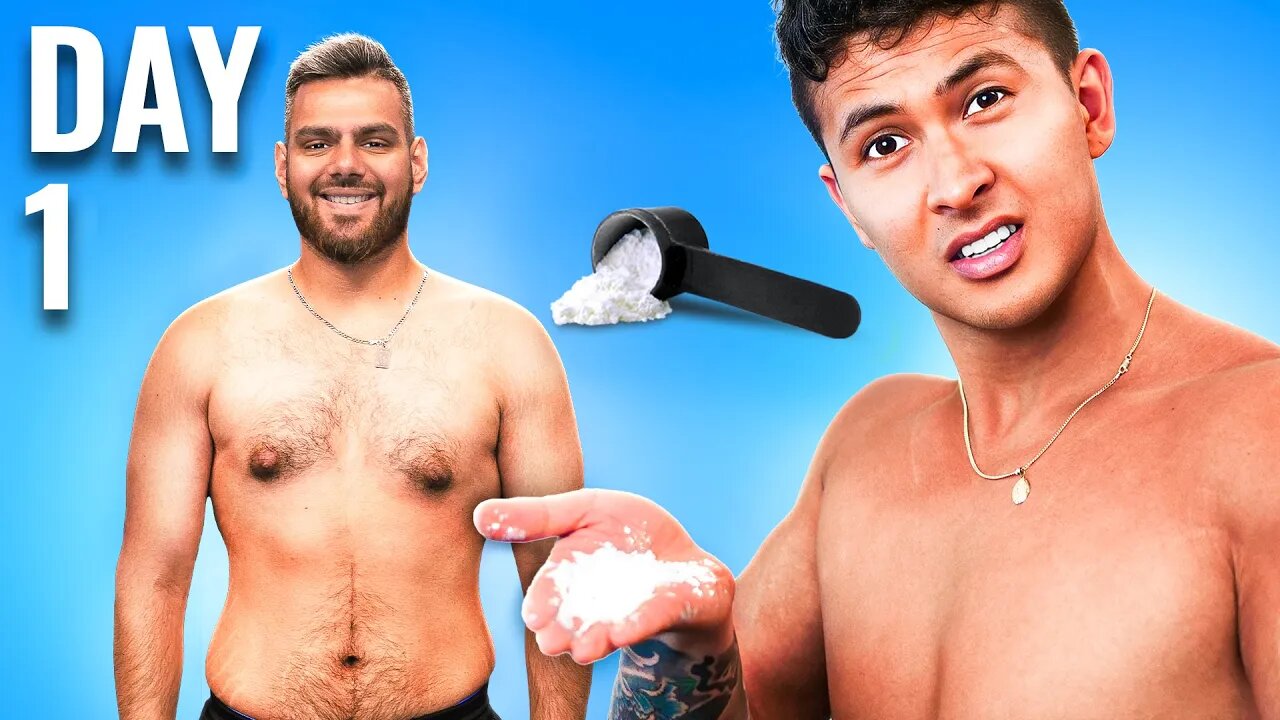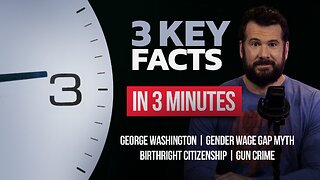Premium Only Content

Beginner Takes CREATINE for 30 Days (RESULTS & SIDE EFFECTS)
Beginner Takes CREATINE for 30 Days (RESULTS & SIDE EFFECTS)
Creatine is a well known supplement for making you bigger, stronger, ad more athletic. But what does a creatine 30 days transformation look like? What happens from taking creatine before and after 30 days? What are the creatine benefits and how should you take creatine for the best results? What about creatine and hair loss? Well in today's video we're putting to test on a beginner - Raza. He'll be taking creatine for 30 days and we'll monitor his weight, muscle size, and strength to see just how much creatine helps, or hurts him.
Click below for a step-by-step diet & training program to transform your body:
https://builtwithscience.com/bws-free...
Subscribe for more videos:
https://www.youtube.com/jeremyethier/...
So when you first start taking creatine, it won’t work right away. You actually won’t experience any benefit until you reach what’s known as full saturation. This is the point when your muscles creatine stores are completely full.
Typically, if you take one 5 gram scoop of creatine a day, this you can reach full saturation in about 3 weeks. But you can experience the benefits faster, in as little as a week, if you use what’s known as a loading protocol. This involves taking 20 grams of creatine every day for a week. However, for some individuals, ingesting this much creatine at once can cause stomach discomfort.
To soothe Raza’s stomach pains, we spaced out his servings throughout the day and also fully dissolved each dose with water instead of dry scooping it. We also made sure he stopped taking it with his pre-workout or any caffeine.There is not only some evidence suggesting that taking caffeine with creatine may make it less effective, but it also seems to greatly increase the odds of stomach discomfort. Making these fixes seemed to do the trick.
Alright so after the 7 days of loading, by now the creatine should be fully saturated in your muscles and is when it’ll start working. This is when you should scale back your dose to just 5 grams per day to simply maintain your elevated creatine stores. However, not everyone responds to creatine. In fact, it’s estimated that about 20-30% of people are non-responders. So once you do reach full saturation, there’s a few benefits and side effects you’ll want to look out for to tell if it’s working.
So when creatine is initially taken into a muscle cell, it also draws water into that cell and often causes a slight spike in your bodyweight as a result. On average research seems to show around a 1-3 lb increase in bodyweight before it stabilizes. Although this may sound like a bad thing especially if you’re on a diet, this water retention can make your muscles look and feel a lot fuller and is a sign that the supplement is working.
Throughout the challenge Raza was also concerned about creatine and hair loss. Why is hair loss a popular concern when it comes to creatine? Well this goes back to a study published back in 2010. Researchers took 20 rugby players and split them into a placebo group or a creatine group where they followed the loading phase for 7 days and then dropped down to maintenance afterwards. Throughout this period, researchers measured what’s known as DHT, a hormone known to contribute to male pattern baldness and hair loss in those who are genetically predisposed to it. So what happened? Well, the creatine group actually experienced a significant increase in their DHT levels by about 56% after the loading phase, which then reduced down to a 40% increase during the maintenance phase.
What does this mean?
Well first of all, the creatine group had lower than average DHT levels to begin with, and the increase they experienced was still within normal levels. Also, no other study has yet to replicate the results.
So I honestly think it’s not a concern, but we will keep an eye on Raza’s head of hair and see if we notice any difference.
But if you’re a responder to creatine, you should notice a slight strength boost across most of your exercises. In fact, a meta-analysis reviewing 22 creatine studies found that on average, trained lifters can expect roughly an 8% boost in strength and 14% boost in number of reps performed. Less experienced lifters like Raza however seem to reap larger benefits, with one study showing an average strength increase of 30% in untrained individuals.
Now Raza’s been able to increase almost all his exercises by 5 lbs or so as well as do a couple more reps, which seems to align with the research.
But in addition to the strength benefits, one study surveying 52 NCAA athletes found that 81% of them reported faster recovery from their training after taking creatine.
95% of supplements are junk. But creatine is an exception. It’s natural, safe and as you saw with Raza, can make a noticeable difference if you’re a responder to it. But, just always keep in mind proper nutrition and hard training will do A LOT more than taking any supplement will.
-
 1:01:26
1:01:26
The Dan Bongino Show
5 hours agoTrump Is Cancelling DEI And Cancel Culture (Ep. 2424) - 02/17/2025
595K1.22K -
 1:06:12
1:06:12
Timcast
4 hours agoDemocrat Swamp IMPLODES, CBS Runs DAMAGE Control For Democrats, Gets ROASTED By Elon | Timcast LIVE
101K111 -
 2:00:58
2:00:58
RealAmericasVoice
10 hours agoWAR ROOM WITH STEVE BANNON AM EDITION
84K16 -
 2:59:47
2:59:47
Wendy Bell Radio
9 hours agoAmerica Drops The Gloves
87.4K54 -
 1:22:27
1:22:27
Steven Crowder
4 hours agoGeorge Washington, Our First President | 3 in 3 Special
264K160 -
 1:03:57
1:03:57
Kyle Fortch
5 hours ago $1.01 earnedDJ Chill: DJing For Jelly Roll, SOLD OUT Tour, Performing at Hometown Arena | THE ONE SHEET S1E4
39K3 -
![The Deep State Spied On Trump & Sabotaged 2020 Operation To Oust Maduro [EP 4440-8AM]](https://1a-1791.com/video/fwe1/94/s8/1/F/5/k/Z/F5kZx.0kob-small-The-Deep-State-Spied-On-Tru.jpg) 4:05:26
4:05:26
The Pete Santilli Show
16 hours agoThe Deep State Spied On Trump & Sabotaged 2020 Operation To Oust Maduro [EP 4440-8AM]
59.5K3 -
 41:53
41:53
Rethinking the Dollar
3 hours agoHype or Hope? Will THE 50-YEAR FORT KNOX GOLD SCANDAL BE EXPOSED?
27.3K10 -
 1:32:36
1:32:36
Game On!
18 hours ago $9.74 earnedPresident Trump TAKES OVER the Daytona 500!
72K15 -
 21:35
21:35
DeVory Darkins
3 days ago $26.40 earnedMitch McConnell TORCHED as Secretary of HHS is sworn in
147K197